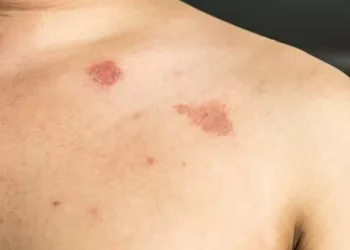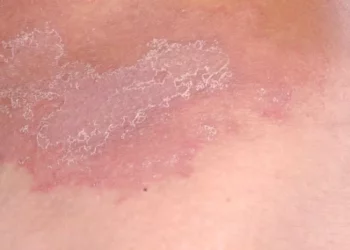Ringworm is a fungal infection that can affect both cats and humans. If you have a kitten and are concerned about ringworm, it’s important to understand how long the kitten can spread this infection and what steps you can take to prevent it. This article will provide a detailed explanation of the duration of contagiousness, symptoms, how ringworm spreads, and ways to treat and prevent it.
What is Ringworm?
Ringworm, despite its name, is not caused by a worm. It is a fungal infection that affects the skin, hair, and nails. The medical term for ringworm is dermatophytosis, and it is caused by several species of fungi, including Microsporum canis, which is the most common strain in cats.
The infection can cause patches of hair loss, red, scaly skin, and itching. In kittens, their immune systems are still developing, which makes them more susceptible to infections like ringworm. This is why it’s particularly important to address the problem quickly if you suspect your kitten has ringworm.
How Does Ringworm Spread?
Ringworm is highly contagious. It spreads through direct contact with an infected animal or surface. The fungal spores are shed from the infected kitten’s skin and hair, and these spores can live in the environment for months. Once these spores come into contact with another animal or human, they can cause an infection.
In kittens, the infection often starts with hairless, circular patches of skin. These patches are the areas where the fungus is most active. However, even if you can’t see these patches, the kitten can still spread the fungus by shedding spores into the environment.
How Long is a Kitten Contagious with Ringworm?
The length of time a kitten remains contagious with ringworm depends on several factors, including the severity of the infection, whether the infection is treated, and the kitten’s overall health.
Without Treatment: If left untreated, a kitten can be contagious for several weeks to several months. The infection will continue to spread as the kitten sheds more fungal spores into its environment. If the kitten has a severe case, it may remain contagious longer.
With Treatment: If you start treatment promptly, the kitten can stop shedding fungal spores within 2 to 4 weeks. However, this depends on the type of treatment being used and the effectiveness of that treatment.
The most common treatments for ringworm in kittens include antifungal creams, oral medications, and medicated baths. These treatments help reduce the spread of spores and alleviate the symptoms of the infection.
Complete Healing: Even if the kitten’s visible symptoms of ringworm (like hair loss and redness) start to improve, the kitten may still be shedding spores for some time. It’s important to follow through with the full course of treatment as prescribed by your veterinarian, even if the kitten seems to be getting better. A complete cure is necessary to ensure that the kitten is no longer contagious.
How to Prevent the Spread of Ringworm
Ringworm can spread quickly, so it’s important to take steps to prevent the infection from spreading to other pets or humans. Here are some tips for managing a kitten with ringworm:
Isolate the Infected Kitten: Until you are sure that the kitten is no longer contagious, it is a good idea to keep it isolated from other pets and people. This is especially important for households with young children, elderly individuals, or anyone with a weakened immune system, as they are more vulnerable to fungal infections.
Clean the Environment: Ringworm spores can survive on surfaces for a long time. It’s important to disinfect the areas where the kitten spends time. Wash bedding, toys, and grooming tools frequently. Use a disinfectant that is effective against fungi, such as bleach diluted with water, or consult your veterinarian for a recommended cleaning solution.
Avoid Direct Contact: Avoid direct contact with the infected kitten as much as possible. If you must handle the kitten, wear gloves and wash your hands thoroughly afterward. This is especially important if you have other pets or children in the home who may be more susceptible to infection.
Limit Outdoor Exposure: If the kitten has access to the outdoors, it’s best to limit this until the infection is fully treated. This prevents the spread of spores to other animals and environments.
Signs and Symptoms of Ringworm in Kittens
Recognizing the signs of ringworm early can help you start treatment sooner and reduce the risk of spreading the infection. The most common symptoms of ringworm in kittens include:
Hair loss: Typically in circular patches, with the skin underneath appearing scaly and sometimes inflamed.
Red, inflamed skin: The skin where the infection occurs may appear red, irritated, or have a rash-like appearance.
Itching or discomfort: Your kitten may scratch or groom excessively in areas affected by the infection.
Flaky or crusty skin: You may notice flaky or scabby patches on your kitten’s skin.
If you observe these symptoms, it’s important to take your kitten to the veterinarian for an accurate diagnosis. Other skin conditions can resemble ringworm, so a vet can help determine whether the symptoms are caused by this fungal infection or something else.
Diagnosing Ringworm in Kittens
A veterinarian can diagnose ringworm using several methods:
Wood’s Lamp Test: This test involves using a special ultraviolet light to examine the infected area. The fungal spores will sometimes fluoresce under this light, helping the vet diagnose the infection.
Fungal Culture: The veterinarian may take a sample of your kitten’s skin or hair and grow the fungus in a lab to identify the type of infection.
Microscopic Examination: In some cases, the vet may use a microscope to look at the hair or skin scrapings to identify fungal spores.
Treatment for Ringworm in Kittens
Treating ringworm in kittens typically involves a combination of topical and systemic treatments. The treatment regimen may include:
Topical Antifungal Treatments: These are creams or ointments applied directly to the affected areas of the skin. They help to eliminate the fungus and soothe irritated skin.
Oral Antifungal Medications: For more severe cases of ringworm or when the infection is widespread, your veterinarian may prescribe oral antifungal medications. These medications help treat the infection from the inside out.
Medicated Shampoos or Baths: Regular medicated baths can help to remove fungal spores from the kitten’s fur and skin, reducing the spread of the infection. These baths should be done as directed by your vet.
Environmental Cleaning: Regular cleaning and disinfecting of your kitten’s living area are essential. Washing their bedding, toys, and other items regularly can help prevent reinfection or spread to other pets.
Can Humans Catch Ringworm from Kittens?
Yes, ringworm is zoonotic, meaning it can be transmitted from animals to humans. People with weakened immune systems, such as young children, elderly adults, or those with conditions like HIV, are especially vulnerable. Even healthy individuals can get ringworm if they come into contact with an infected kitten or contaminated surfaces.
To avoid spreading ringworm to humans, be sure to follow strict hygiene practices, such as washing your hands thoroughly after handling your kitten or cleaning its environment. If you develop symptoms like rashes or hair loss, contact your doctor promptly.
Conclusion
Ringworm is a common fungal infection in kittens, and while it can be highly contagious, it is treatable with proper care. Kittens can remain contagious for weeks or months without treatment, but with prompt intervention, the duration of contagiousness can be significantly reduced. By isolating the infected kitten, maintaining good hygiene, and following your veterinarian’s treatment plan, you can help prevent the spread of ringworm to other pets and humans.
If you suspect your kitten has ringworm, take action as soon as possible. Early treatment and proper management will ensure that your kitten recovers quickly and that the infection doesn’t spread to other animals or people in your household. Always consult with your veterinarian for guidance on the best course of action to protect both your kitten and your family from ringworm.
Related topics



























